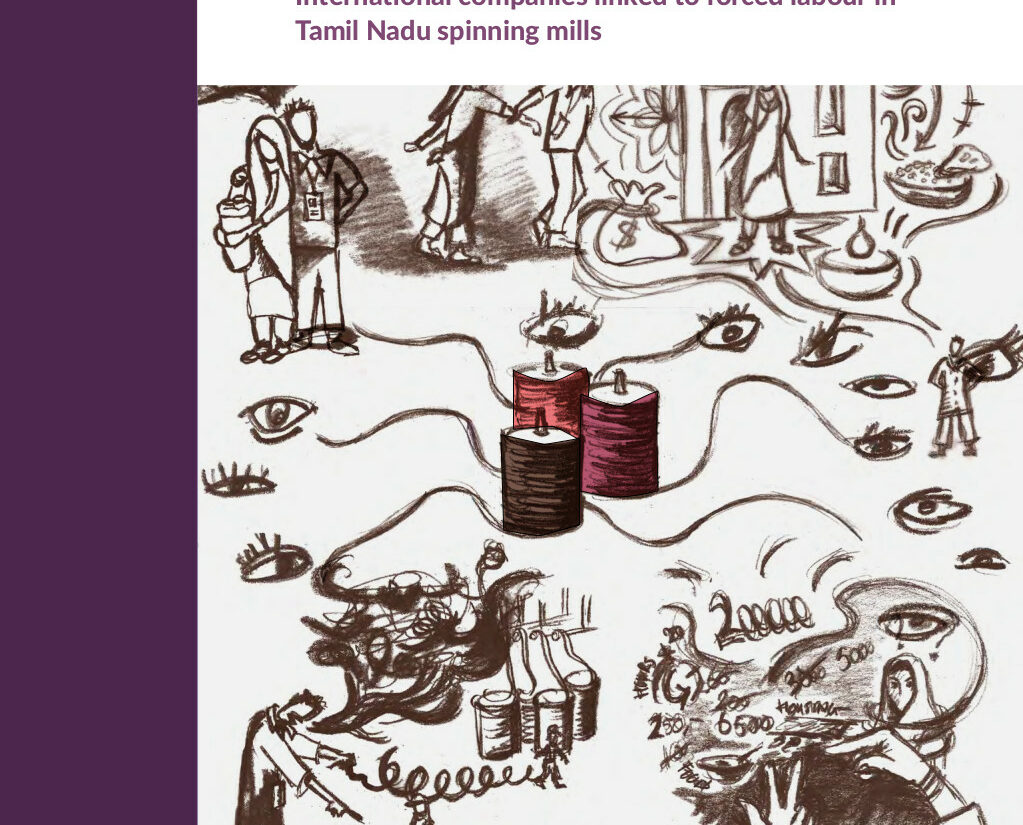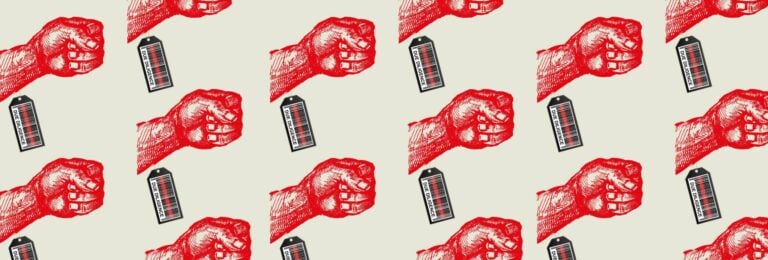
Spinning Around Workers’ Rights
International companies linked to forced labour in Tamil Nadu spinning mills


In ‘Spinning Around Workers’ Rights’, SOMO and Arisa present evidence of the existence and risk of forced labour in the spinning industry in Tamil Nadu. The Indian state of Tamil Nadu is a major hub in the global cotton-based textile and garment industry. Enormous quantities of yarns and fabrics are produced here, for a huge variety of apparel items and household textiles manufactured in India and other countries. Through their global supply chains, international brands and retailers that serve the European and North American markets are linked to the issue of forced labour in Tamil Nadu. For the report, 725 workers in 29 spinning mills were interviewed. Additional research was done into sourcing relations and trade flows, using trade databases and publicly available supplier base information.
The SOMO-Arisa report uses the 11 indicators for forced labour developed by the International Labour Organisation of the United Nations (ILO), to assess the working and living conditions of spinning mill workers in Tamil Nadu. Of the 11 indicators, five were found to be most relevant: abuse of vulnerability; deception; intimidation and threats; abusive working and living conditions; and excessive overtime.
This new evidence, as well as existing analysis and reports from SOMO, Arisa and other organisations, suggest that the problems are not limited to the 29 mills under investigation. Forced labour should be considered a major risk throughout the entire Tamil Nadu textile sector.
Despite the pervasive lack of transparency on trade flows and supply chain relations, SOMO and Arisa have been able to identify concrete links between the 29 spinning mills and nine internationally operating companies: Carrefour, GAP, IKEA, Marc O’Polo, NEXT, Sainsbury’s, Tesco, The Cookie Company Group, WE Fashion, and Zeeman. To add context, the report lists 25 big international importers of apparel items from Tamil Nadu. A number of companies sent a formal statement for publication on the website. Read them here.
The report also reveals how vulnerable workers who are victim of exploitation in the spinning mills in Tamil Nadu are severely affected by the ongoing Corona crisis in India.
Partners
Publication
Accompanying documents


Related news
-
 The hidden human costs linked to global supply chains in ChinaPosted in category:News
The hidden human costs linked to global supply chains in ChinaPosted in category:News Joshua RosenzweigPublished on:
Joshua RosenzweigPublished on: -
 Major brands sourcing from China lack public policies on responsible exitPosted in category:News
Major brands sourcing from China lack public policies on responsible exitPosted in category:News Joshua RosenzweigPublished on:
Joshua RosenzweigPublished on: -
Linking labour issues in China to global brands Published on:Posted in category:Publication


